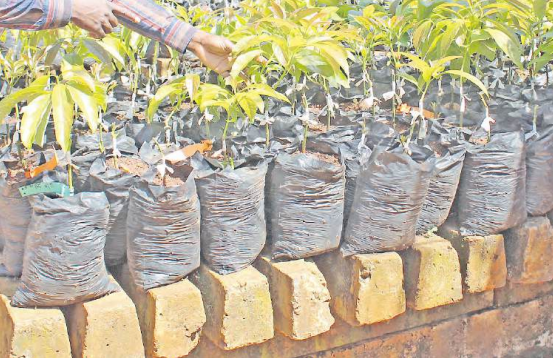

Farmers in Narok County are making a transition from wheat farming to avocado cultivation, a shift driven by the availability of expansive arable land and the growing export market for avocados.
According to the Kenya Agricultural and Livestock Research Organisation, avocado is a vital horticultural crop in Kenya, representing about 75 per cent of the country’s fresh fruit exports.
Small-scale farmers dominate avocado production, contributing approximately 80 per cent of the total output.
In 2019, Kenya emerged as the leading exporter of avocados in Africa and the sixth-largest globally, although only 10 per cent of the total production was exported.
Currently, Murang’a county leads avocado production, contributing 32 per cent of the national output, followed by Kiambu and Kisii at 13 per cent each.
Bomet and Nyamira contribute 5 per cent each.
The main varieties grown include Hass, Fuerte, Pinkerton, Puebla and Entigger.
Joel Kimtai, an avocado farmer in Narok, said although a new venture in the region, the county could soon surpass Murang’a in avocado production.
He attributed this to the county’s vast land, which has driven many farmers to change from wheat to avocado farming, or supplement wheat with avocados.
“The introduction of avocado farming came at a crucial time when the Maize Lethal Necrosis Disease (MLND) hit many farmers who relied on large-scale maize farming. We embraced avocado farming quickly, especially when we found an exporter who assured us of a ready market,” Kimtai explains.
Since taking up avocado cultivation in 2013, he says farmers have more income and their lives have improved.
Kimtai is a member of the Cismara Avocado Cooperative Society, founded in 2012, which supports over 2,000 avocado farmers.
The cooperative collectively exports 147 tonnes of avocados annually. Prices have risen significantly; a kilo, that once sold for Sh38 now goes for Sh80 - reaching Sh115 at one point.
Despite the positive changes, Kimtai points out several challenges. One major issue is access to Kephis-certified avocado seedlings.
Nurseries certified by the Kenya Plant Health Inspectorate Service are in Nairobi, Thika and Murang’a, making the seedlings expensive.
He also points out the lack of extension services, with support mostly coming from exporters who provide agronomists and capacity-building programs.
Additionally, the logistical challenges of transporting avocados, especially the need to prevent damage during transit, add to the costs.
“We need technical expertise to address issues like pests, diseases and harvesting,” Kimtai urges, calling for more government support.
John Gitau, from the Murang’a Avocado Farmers Union, shares similar sentiments. His union, formed by consolidating primary cooperatives from across Murang’a, now represents over 4,000 members.
Through the union, farmers have harvested and exported around 500 tonnes of avocados annually, with plans to increase production to one million tonnes.
Coming together has helped them secure investments, including a large packing house in Kandara with cold storage facilities.
“We aim to add value by washing, grading and storing avocados before export,” Gitau said.
However, challenges such as pests, including the fruit fly, affects the quality of the produce.
The union has invested over Sh4 million in fruit fly traps, which has improved fruit quality. Like Kimtai, Gitau noted the lack of extension services as a significant obstacle.
Farmers often seek assistance from organisations like Icipe and Kalro.
Despite these hurdles, Gitau remains optimistic about Murang’a’s future as the top avocado-producing county, although other counties are making significant strides.
Ojepat Okisegere, CEO of the Fresh Produce Consortium of Kenya, notes that non-traditional avocado-growing counties, including Narok, Bomet, Nandi, Siaya, Bungoma, Trans Nzoia, Uasin Gishu and Kisii, are rapidly embracing its farming.
“There is a growing trend in the western region, particularly in Trans Nzoia, where large areas are being converted to avocado farming,” Okisegere said.
Okisegere mentioned some of the challenges facing the avocado sector, particularly the False Codling Moth and urged the government to invest in pest control.
“If left unchecked, FCM could severely impact exports, with losses
potentially reaching 50 per cent.”










